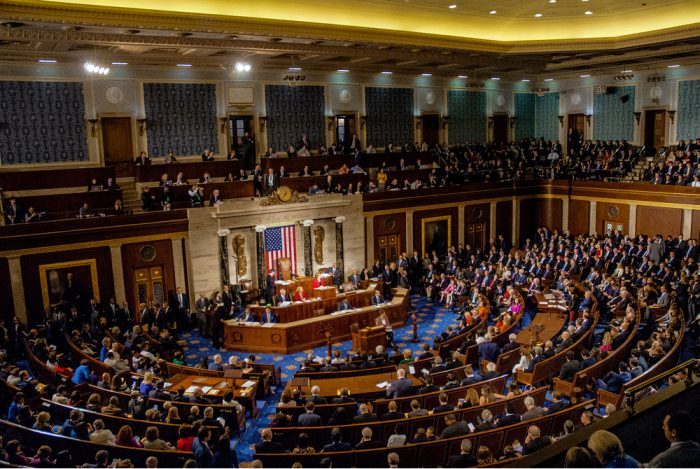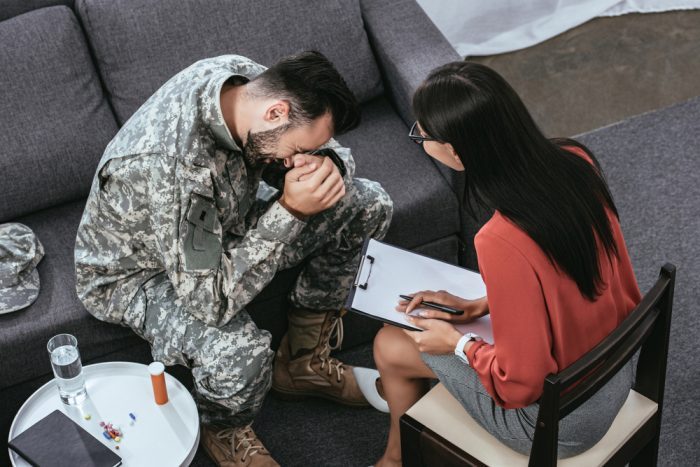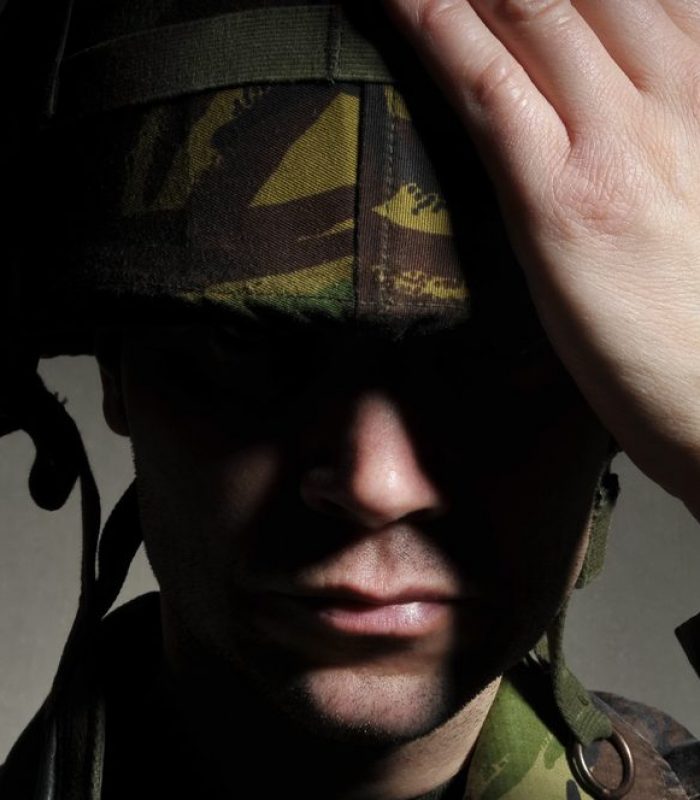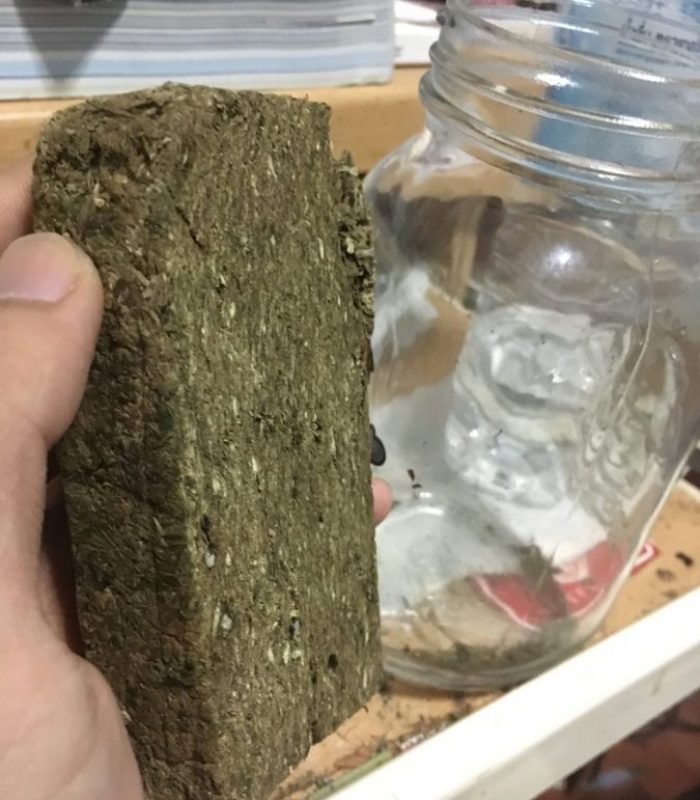Potential landmark day for veterans and cannabis!
This article has been archived. Follow up: Three Bills To Give Vets Access To Legal Cannabis Shut Down By Trump Admin.
This week on Tuesday, the House Veterans’ Affairs Subcommittee on Health will hear three cannabis bills. This is a potential landmark for the cannabis movement in the US. But what’s so important about these bills? And what are they pushing for?
What is the VA, and What Does it Have to Do With Cannabis?
The US Department of Veterans’ Affairs is the federal agency responsible for providing healthcare services to veterans across the country. Current federal law considers cannabis and its derivatives as Schedule I controlled drugs. This means VA doctors are unable to recommend cannabis-based treatments. Moreover, veterans risk losing their benefits if caught using medical cannabis, even if it is legal in their state.
What Are the Bills?
The three bills form part of a Democrat-led push in this, the 116th Congress, to revise medical cannabis law at the federal level.

Veterans Cannabis Use for Safe Healing Act
Representative Greg Steube (R-FL) introduced the Veterans Cannabis Use for Safe Healing Act. The bill would provide legal protection for veterans using cannabis in states with legalized use of cannabis and its derivatives. Currently, Veterans’ Affairs has the discretion to continue granting benefits to medical cannabis patients on their plan in states where it is legal. However, this usually works as a “don’t ask, don’t tell” policy. So, veterans could lose their benefits if their doctor reports cannabis use. But this bill would change that.
The Veterans Equal Access Act
The Veterans Equal Access Act has been introduced by Representative Earl Blumenauer (D-OR). It would lift the restriction on Veterans’ Affairs doctors that prevents them from recommending cannabis for veterans under their care.
At present, veterans who wish to use medical cannabis are in the same situation as civilian patients: insurance won’t cover it. So, they must pay out of pocket for a recommendation from an out-of-network physician. And even an initial consultation at a private cannabis doctor can cost hundreds of dollars. While the poverty rates for veterans have been rising in general, disabled veterans are still more affected by poverty than average. This means that disabled veterans who may benefit greatly from cannabis are frequently denied treatment.

The VA Medicinal Cannabis Research Act
Finally, Representative Lou Correa (D-CA) introduced the VA Medicinal Cannabis Research Act. This bill relates to research into the use of medical cannabis and its derivatives. Rep. Phil Roe of Tennessee filed a similar bill last year (R-TN), which the committee approved. It was the first of its kind to pass the committee stage in Congress. However, while last year’s bill would have simply encouraged Veterans’ Affairs to pursue research, the version to be considered by the committee this Tuesday, April 30th would require Veterans’ Affairs to commence research into the use of medical cannabis for conditions such as chronic pain and PTSD.
Why Do Veterans Need Safe Access to Cannabis?
A 2017 study indicated that, in 2014, about 9% of veterans had used cannabis in the previous year. Of these veterans, 41% had used the drug medicinally. That’s a rate of medical usage more than double that of the general population. Furthermore, a 2019 survey conducted by the Iraq and Afghanistan Veterans of America indicated that 75% of veterans “would be interested in using cannabis or cannabinoid products as a treatment option if it were available.”
Should these three bills pass the committee stage, they would proceed to the house for consideration. Success would constitute a major change in direction in cannabis legislation, particularly for veterans. Statistics show that veterans are more likely to be affected by problems such as problematic use of opioids, PTSD, and chronic pain; conditions for which cannabis-based treatments are routinely recommended in many of the 33 states that have legalized some form of medical cannabis. For example, a 2014 study conducted in New Mexico found that veterans who were treated with cannabis reported a 75% reduction in the severity of PTSD symptoms versus patients who were not.

However, while the bills would improve access for veterans in legalized states, it won’t help those in prohibition states and territories. Allowing veterans legal, federally-sanctioned access to these safe and effective remedies would provide much needed relief for those who have served their country honorably. It is the least we can do for those living with lifelong physical and psychological consequences of their service.
Conclusion
While veterans are among those most affected by the plant’s current illegality, members of other marginalized groups – such as the impoverished and minorities – also suffer disproportionately from our outdated cannabis laws. This situation illustrates an urgent need to enact wider reforms on the federal level. It won’t only be veterans and their doctors interested in the outcome of Tuesday’s hearing. The outcome of these bills will serve as a weathervane for the changing tide of cannabis legalization in the US. Hopefully soon, we will see more legalization, state-by-state.





Sherry Klotz
how far one thing being able to legalize cannabis would take a lot of money away from the pharmaceutical companies which would also take a lot of money away from the US government. So on the other side cannabis if it were open to the public veterans would be able to get there elements and house and things taking care of for them that medical conditions can not and I would be able to get their depression and their physical pain relieved and outside veterans then the American people that have physical and mental problems should also get medications for the things that they could use instead of this other stuff that poisons our bodies. So there would be a hundred percent Improvement at a whole lot less cost hor pharmaceutical companies government and probably the medical field but not all of them are just wanting the Bucks so we can’t blame all of the doctors and things of course they do need their share of their studies their intelligence and their abilities to use this drug for other purposes to help people so we have to give that a lot of thought to think of a number of things that it is good for and the good people that can use it.